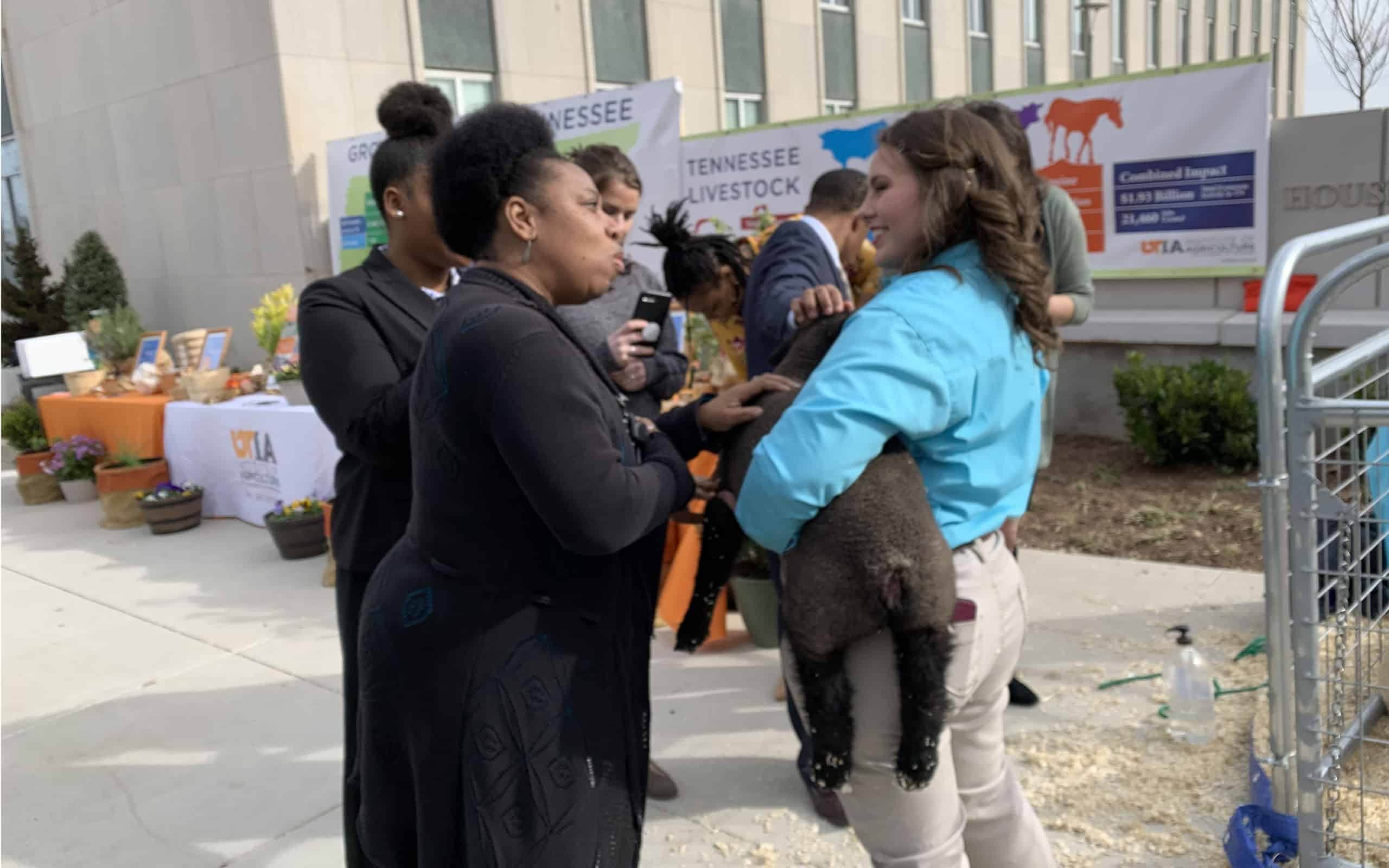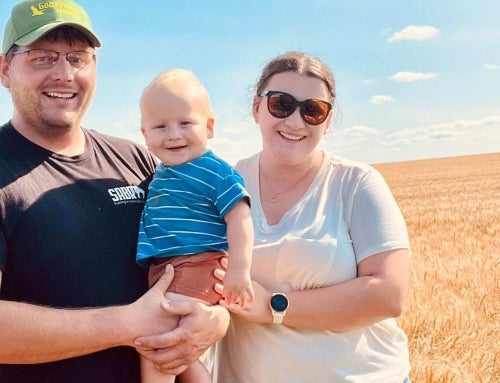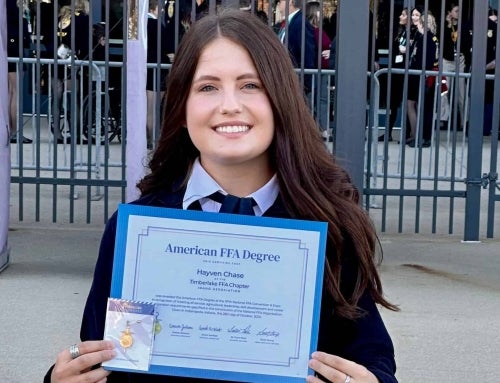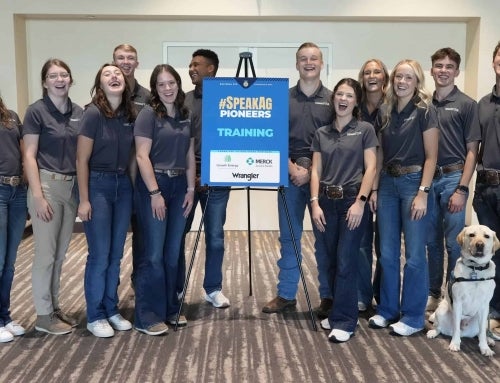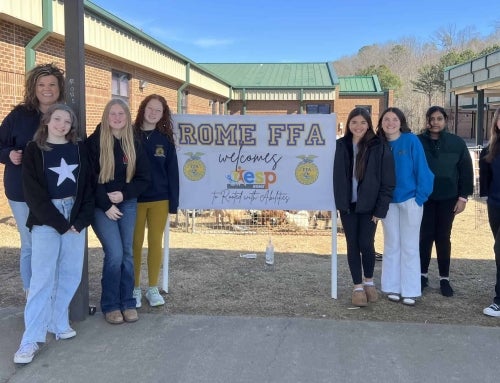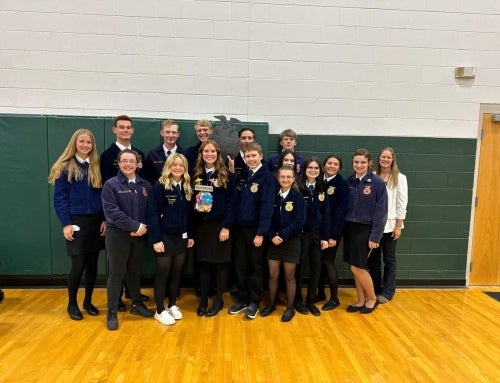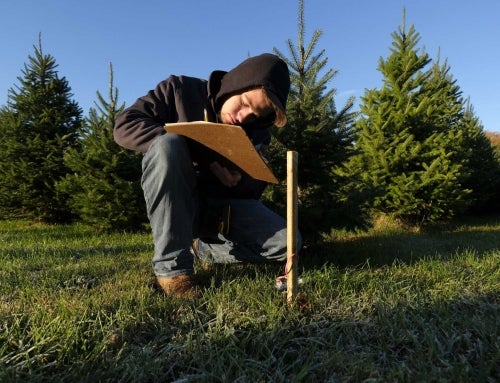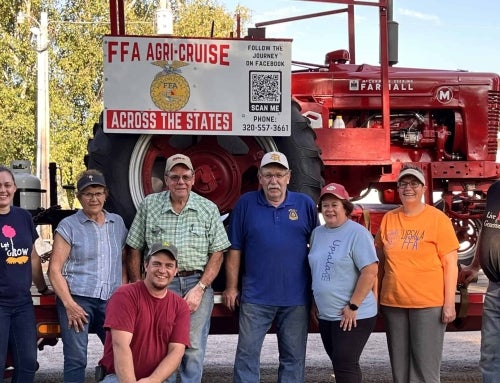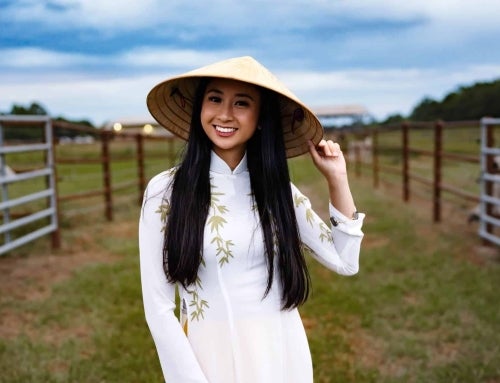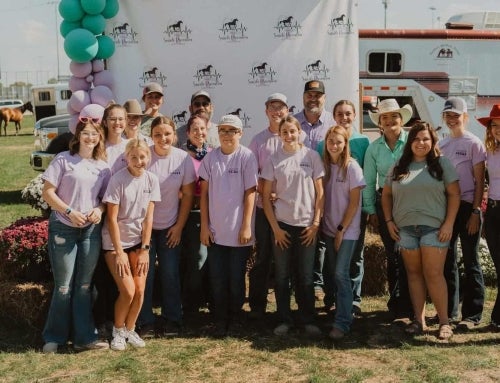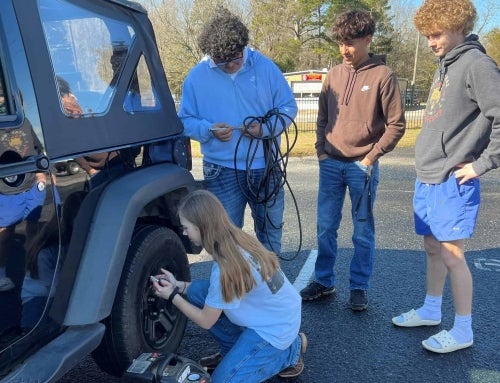It’s always a good time to advocate for agriculture, but county and state fairs provide ample opportunities to spread the message. All you have to do is speak up.
Emily Nave, an FFA #SpeakAg Ambassador and former president of the Woodbury FFA in Woodbury, Tenn., encourages those showing livestock at fairs to find ways to connect with spectators and share personal anecdotes that give them an idea of what ag is all about.
“My family and I have shown sheep at fairs for 12 years, and my favorite part of the experience has always been sharing my love and appreciation for agriculture,” says Nave, who is now a member of the University of Tennessee-Martin Collegiate FFA. “While people are petting, holding or feeding my lambs, I take the opportunity to share my story of growing up on a farm and caring for animals. My primary goal is to serve as a bridge between them and the agriculture industry.”
Nave also speaks to livestock show attendees about the global food chain and the critical role animals like cows, chickens, pigs and lambs play in it.
“Many people don’t realize the livestock they’re seeing at the fair will eventually go to market and become meat for us to eat,” Nave says. “I explain that these animals serve an important purpose, and our job in production agriculture is to make sure they humanely get from the farm to the table.”
Not showing an animal? No problem. You can still advocate for agriculture at a fair. Consider joining forces with your FFA chapter to set up a booth – a perfect opportunity to distribute educational materials and share the many benefits of ag education and FFA.
Additional options include finding a place to volunteer at your local fair or applying to serve as an intern with your state fair association, both of which will provide plenty of chances to share the importance of agriculture.
“I encourage anyone who wants to advocate for agriculture to be open and vulnerable because that’s often how the most meaningful connections are made,” Nave says. “It’s not enough to rattle off facts, figures and statistics; you’ll make a bigger impact by sharing a story they can relate to. Even if you’ve never raised livestock or grown crops, you have a connection to ag – we all do. The key is getting others to understand that and become aware of their own connections.”
Discover more ways to advocate for agriculture at FFA.org/ag-literacy-and-advocacy.
Learn More on the Impacts of Fairs
- Watch Now: A panel of experts from Merck Animal Health join #speakag Ambassador Joseph Schlies and National FFA Officer Kourtney Lehman to talk biosecurity.
- Fair-related career development events
- Fair-related agriscience fair and National Chapter Award program activity examples
- Information from the International Fair and Expo:

